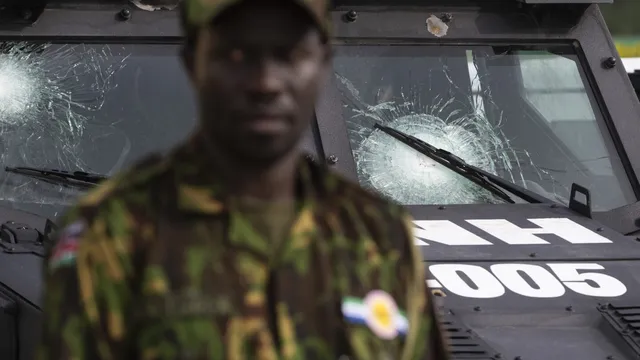
Jamaica sends troops to Haiti to combat gang violence
2024-09-10 15:54- Jamaican Prime Minister Andrew Holness announced the deployment of 24 soldiers and police officers to Haiti to support a U.N.-backed mission against gang violence.
- The initial deployment is part of a larger commitment of 170 soldiers and 30 police officers, but logistical challenges have limited the number sent at this time.
- The ongoing violence in Haiti has resulted in thousands of deaths and widespread displacement, highlighting the urgent need for international support.
Express your sentiment!
Insights
Jamaican Prime Minister Andrew Holness announced the deployment of 24 soldiers and police officers to Haiti to support a U.N.-backed mission aimed at combating gang violence. This contingent, consisting of 20 soldiers and four police officers, is set to arrive on Thursday and will work alongside nearly 400 Kenyan police already in Haiti. The Jamaican forces will focus on command, planning, and logistics support, as the country had previously pledged a total of 170 soldiers and 30 police officers, but logistical challenges have limited the initial deployment. The ongoing violence in Haiti has reached alarming levels, with gangs controlling 80% of Port-au-Prince and over 3,200 people killed between January and May. The situation has also resulted in more than half a million people being displaced. Holness emphasized the need for a successful operation, indicating that the deployment is part of a broader strategy to address the escalating crisis in Haiti. The U.N. has been facing challenges in funding the Kenyan-led mission, with only $68 million received out of the $85 million pledged. U.N. Secretary-General António Guterres highlighted the need for countries to take responsibility for funding the mission. Meanwhile, discussions are ongoing regarding the potential for a U.N. peacekeeping operation to replace the current mission, although experts are skeptical about its approval by the U.N. Security Council. The overall mission aims to have around 2,500 personnel, with contributions from several countries, including the Bahamas and Bangladesh. The estimated cost of the mission is approximately $600 million annually, underscoring the significant financial resources required to stabilize the situation in Haiti.
Contexts
Jamaica has deployed troops to Haiti to combat escalating gang violence, which has surged since the assassination of President Jovenel Moïse in July 2021. Gangs now control approximately 80% of Port-au-Prince, prompting the Haitian government to declare a national state of emergency. The situation has raised international concern, leading to humanitarian aid announcements, including $45 million from the U.S. to address the crisis. The ongoing violence has displaced over 578,000 people in Haiti, severely disrupting livelihoods and exacerbating the humanitarian crisis. Children are particularly vulnerable, with reports indicating that five children are killed or injured weekly in gang-related incidents. This dire situation necessitates immediate intervention to protect the youth and restore safety in communities. In response to the crisis, UNICEF has implemented cash transfer programs to provide financial support to families, enabling them to meet basic needs and restart small businesses. This assistance aims to foster resilience and support children's education, helping families rebuild their lives amid the violence. Despite the presence of Kenyan forces, local residents continue to report ongoing violence, highlighting the challenges in stabilizing the country. The international community remains focused on finding effective solutions to curb the violence and support the Haitian people in reclaiming their security and stability.